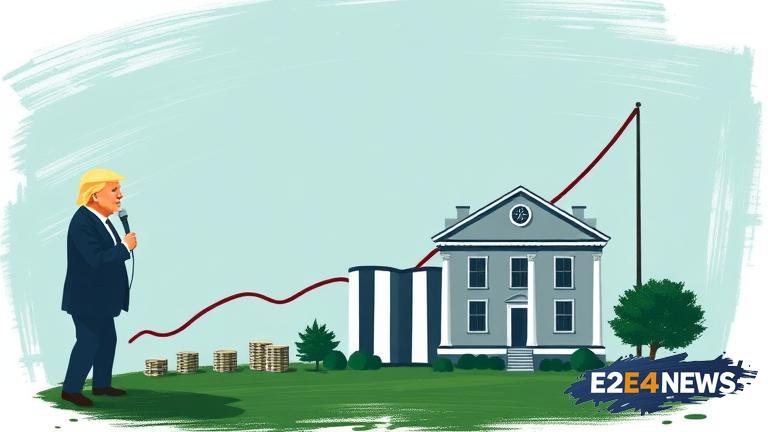The recent proposal by Trump to eliminate capital gains tax on primary residences has sent shockwaves throughout the real estate industry. The plan, which is part of a broader tax reform package, aims to provide relief to homeowners who are looking to sell their properties. Currently, homeowners are exempt from paying capital gains tax on the sale of their primary residence, but only up to a certain amount. The proposed reform would eliminate this tax altogether, making it easier for people to buy and sell homes. However, experts are warning that this move could have unintended consequences, such as increasing the national debt and reducing government revenue. On the other hand, proponents of the plan argue that it would stimulate the housing market and encourage people to invest in real estate. The proposal has also sparked debate among lawmakers, with some arguing that it would primarily benefit wealthy homeowners who are looking to sell their luxury properties. Others argue that it would provide much-needed relief to middle-class families who are struggling to afford homes. The impact of the proposal on the housing market is still unclear, but experts predict that it could lead to an increase in home sales and prices. However, it could also lead to a decrease in government revenue, which could have negative consequences for public services and infrastructure. The proposal is part of a broader effort by the Trump administration to reform the tax code and provide relief to American families. The administration argues that the current tax code is complex and unfair, and that the proposed reforms would simplify the system and make it more equitable. However, critics argue that the proposal would primarily benefit large corporations and wealthy individuals, rather than middle-class families. The proposal has also been criticized for its potential impact on the environment, as it could lead to an increase in construction and development. Despite these concerns, the proposal has been welcomed by many in the real estate industry, who argue that it would provide a much-needed boost to the housing market. The proposal is currently being debated in Congress, where it is facing opposition from lawmakers who are concerned about its potential impact on the national debt. The outcome of the debate is still unclear, but one thing is certain – the proposed tax reform would have far-reaching consequences for the housing market and the economy as a whole. The proposal has also sparked debate among economists, who are warning that it could lead to a decrease in government revenue and an increase in the national debt. However, others argue that it would stimulate economic growth and create jobs. The proposal is a complex issue that requires careful consideration and analysis. It is unclear how the proposal would affect different regions and communities, but it is likely that it would have a significant impact on the housing market and the economy. The proposal has also been criticized for its lack of transparency and accountability, as it is unclear how the revenue lost from the elimination of capital gains tax would be replaced. Despite these concerns, the proposal has been welcomed by many as a step in the right direction towards simplifying the tax code and providing relief to American families. The proposal is a significant development in the ongoing debate about tax reform, and its outcome is likely to have far-reaching consequences for the economy and the housing market. The proposal has also sparked debate among experts, who are warning that it could lead to an increase in housing prices and a decrease in affordability. However, others argue that it would provide much-needed relief to homeowners who are struggling to afford their properties. The proposal is a complex and multifaceted issue that requires careful consideration and analysis. It is unclear how the proposal would affect different regions and communities, but it is likely that it would have a significant impact on the housing market and the economy. The proposal has also been criticized for its potential impact on low-income families, who may not benefit from the elimination of capital gains tax. However, others argue that it would provide much-needed relief to middle-class families who are struggling to afford homes.
